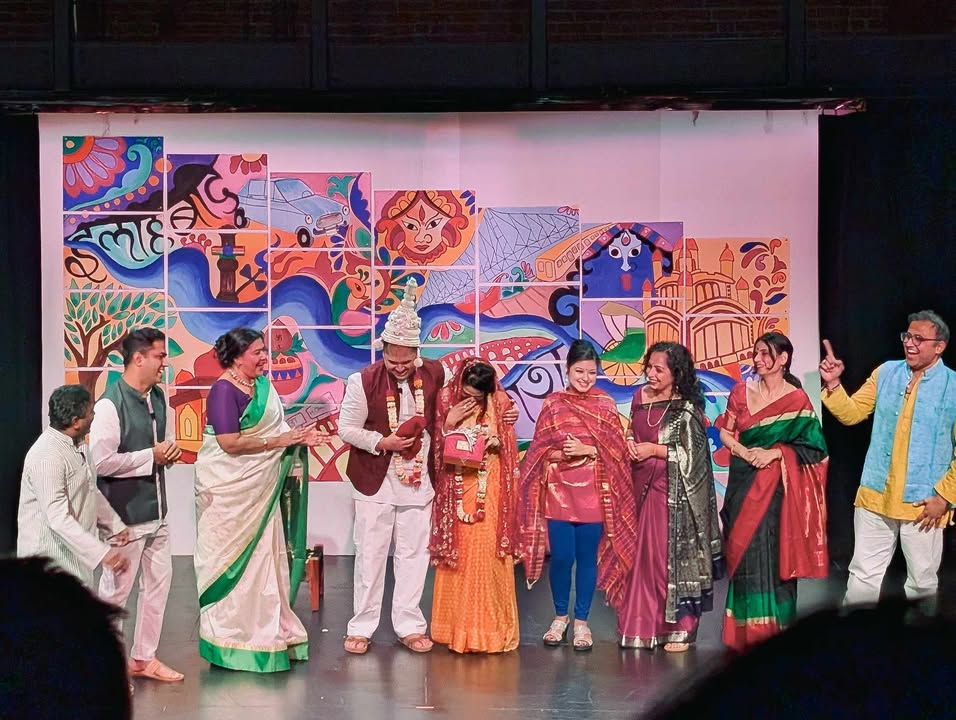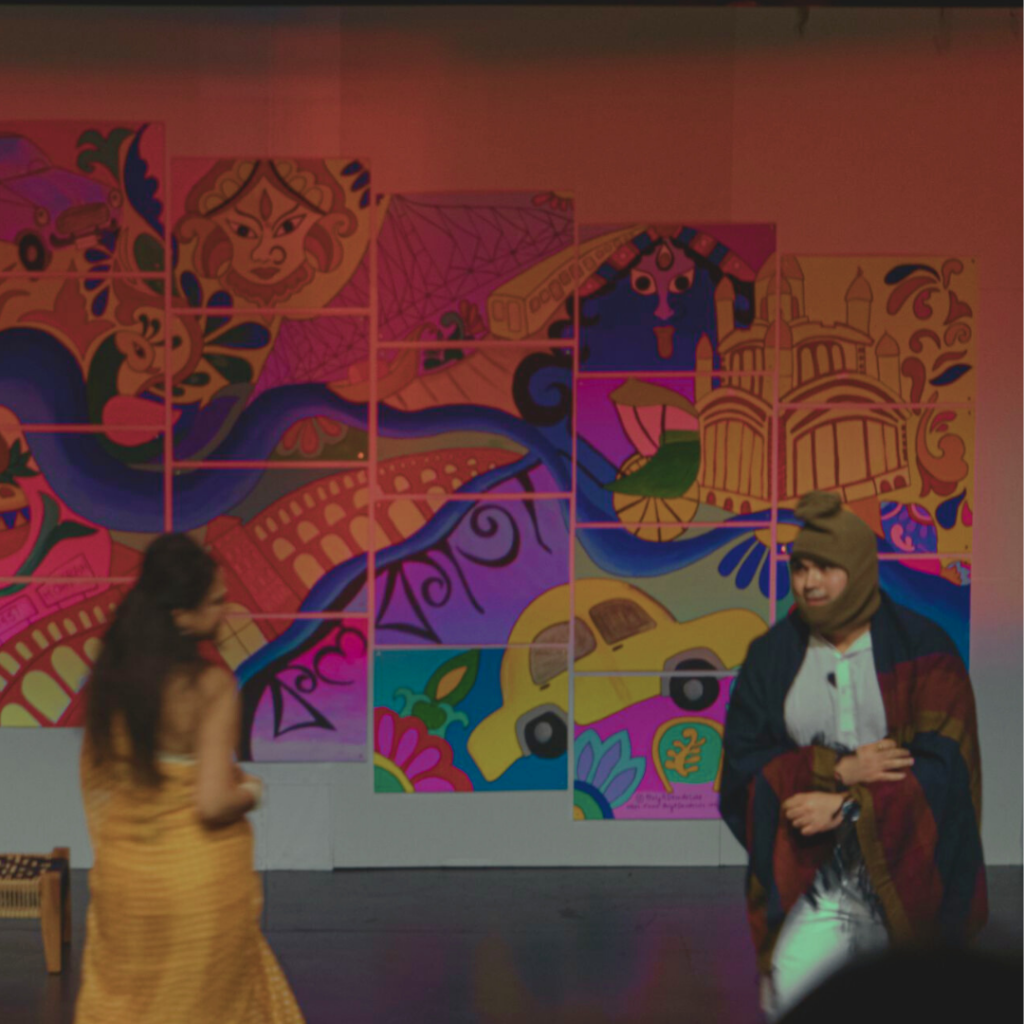Hush-Hush in Worcester


Worcester — On Saturday, my husband surprised me with tickets to a play at the JMAC (Jean McDonough Arts Center) in downtown Worcester. This play was based on a novel by a Bengali author, which was later turned into a movie. Bengali artists like writer Rabindranath Tagore and filmmaker Satyajit Ray are hailed as intellectual figures and major contributors to not just Indian or South Asian art, but I argue, as others concede, international art.
This play followed my expectations of a screenplay-version remake of a famous Indian movie from the 70s set in the same time. The fashion was reminiscent of my own grandmothers and mothers draped in the fashion of the time, as I found them while flipping through old photo albums or their wearing their vintage sarees. The polka dots, bright solid-colored headbands, oversized sunglasses, and the halter saree blouses were all quite spot-on, along with the high-puffed hair and bold eyeliners. Apart from the ladies, the men’s fashion followed what you would expect based on the characters: a barrister in a black coat, the (imposter) watchman wearing that ridiculous yet accurate warm cap (shown in the picture) that reminds you of your average village “kaka,” or uncle.
Yes, we call strangers uncles and aunts, or if they are our age, brothers and sisters. Something that needs constant explaining whenever I call someone that’s not my first nephew my nephew, etc. to anyone who is not part of a similar culture. Whenever the characters said Hindi or Bengali words, the translation would be displayed on two vintage-styled TVs on the sides of the stage. This allowed the characters to repeat rhymes along with the different little cultural references such as calling strangers “kaka” or the father’s younger brother. Apart from being used to display the handy translations of Hindi or Bengali words, no doubt much necessary as the screenplay is likely translated from those languages to English, the two TVs were also used to depict the settings like a building or a car.

I loved seeing the ordinary in the drama. I missed this ordinary. The ordinary which seemed comical when magnified and intentionally incorporated into the play by the screenwriter and brought to life by the actors. Like when the newly-wed wife packs lunches in a tiffin-box, the British-English version – that is actually the English taught in schools in South Asia, at least in India and Nepal, where I am from – of lunch-box. I frequently try to do that being a stay-at-home wife currently for my husband who goes to work. I am not sure if he caught that commonality. How tea is ever-flowing in the household for members of the house and guests alike. How people talked oh-so-loudly into those old phones, that would cut off without warning. Not sure how those phones worked but the whole neighborhood would be part of the conversation, just by the loudness of the participants.
While I appreciated these small details and the good old South Asian humor, I was also reminded sharply of the social ills of South Asian society, namely how big a deal it is if a woman stays away from home for a night, that is still very much prevalent today. The director’s remarks at the end made it clear that this might have been the original author’s and certainly was the screenwriter director’s intent to portray the societal views as they were. I want to say that I appreciate this version of the play far better than I would have an unrealistic portrayal of South Asian society. Yet, I liked the intertwinement of humor in the script. While the sisters of the runaway women cried because of their sister’s seemingly scandalous act – “how could she do this to us? when she’d been entrusted to our care? What will people say”, the sisters knew they weren’t doing anything wrong and let them wail for a couple of evenings. They would be in for a pleasant surprise, right? Older siblings and parents of young adolescents may disagree at how the runaway sisters dealt with surprising their families.
Either way, the audience rejoiced in the families’ dramatic sorrows. And to be honest, knowing as an audience that they were in for a pleasant surprise did make their then sorrows humorous.
I won’t ruin the plot for you. If you’re interested in checking out the movie this play is based on, it’s called “Chup Chup Ke,” which in English translates to “Hush Hush,” the title of the play. Just as a shout-out to the theatre crew, they should be back with another play early next year, revealing more social ills with humor.

You may also like: A Call for Ceasefire Resumes at City Council Meeting Amid Continued Debate



